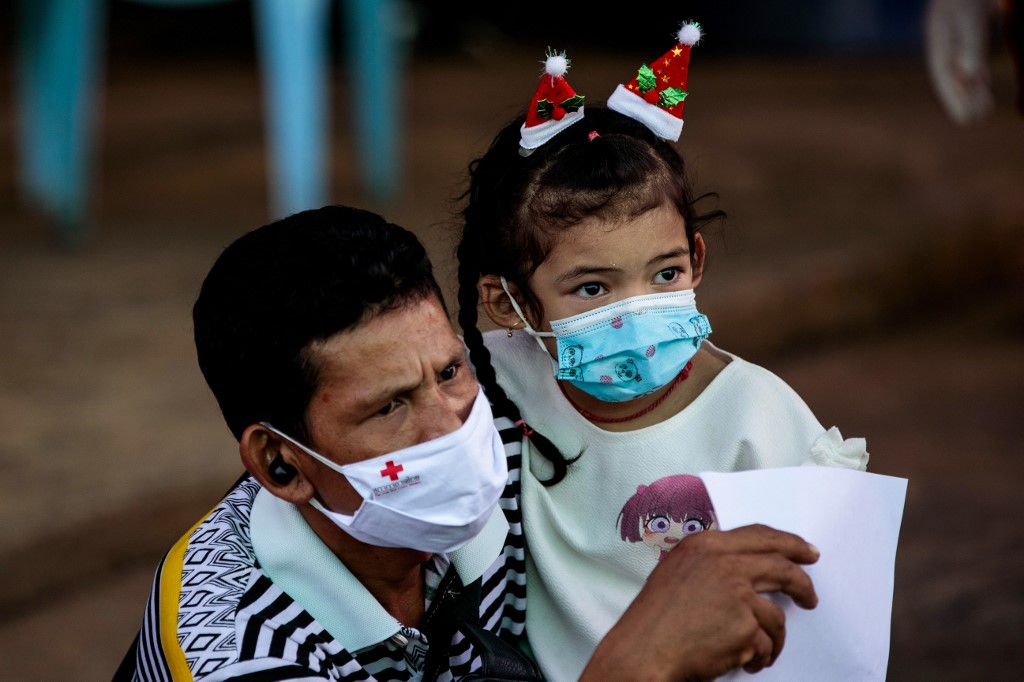Thailand will test more than 10,000 people for coronavirus after an outbreak linked to its biggest seafood market, officials said Sunday.

A girl wearing a face mask and little Santa Claus hats pinned in her hair watches as medical officials test people for the COVID-19 coronavirus at a seafood market in Samut Sakhon on December 19, 2020 after some new cases of local infections were detected and linked to a vendor at the market. (Photo: AFP)
Nearly 700 new infections have been linked to Mahachai market and port since a 67-year-old female prawn seller tested positive on Thursday -- most cases among Myanmar workers who toil in the kingdom's multi-billion-dollar seafood industry.
Authorities ordered Myanmar workers around the market not to leave their residences.
"We are locking and banning them from moving," the health ministry's permanent secretary, Kietphgum Wongit, said Sunday -- adding authorities would provide them with food and water.
By Sunday officials had confirmed 689 cases linked to Mahachai.
"The (Department of Disease Control) will do active tracing in several communities of about 10,300 people," said Taweesin Visanuyothin, a spokesman for Thailand's Covid-19 taskforce.
The testing would be free for migrant workers and continue until Wednesday, he said.
Thailand shares porous borders with four countries, including Myanmar, which sees more than 1,000 new cases a day.
Images shared Sunday by Thai media showed crowds of masked workers lined up shoulder-to-shoulder as they waited to get tested.
"It is impossible to social distance here," said Kyaw Zay Yar, a Myanmar worker helping a local foundation coordinate testing.
He said anti-Myanmar sentiment had been shared on social media -- with Thais accusing the workers of importing the highly infectious disease.
"Myanmar migrants are feeling uneasy as well... we are just trying to calm each other down," he said.
"The situation is likely to get worse in the coming days."
Rights groups say Mahachai's shrimping and seafood industry is fueled by a low-paid migrant workforce, subjected to poor working and cramped living conditions.


